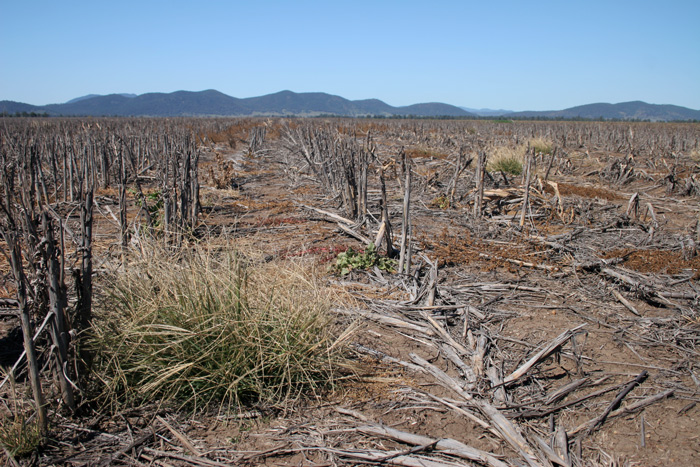With so many farmers dry seeding crops to maximise potential yield, the loss of key post emergent herbicides through resistance makes it is even more important that weed control is planned before seeding.
Unfortunately many growers are unknowingly spending tens of thousands of dollars on ineffective herbicides. Gut-feelings and wishful thinking are no substitute for hard data and sound analysis.
 This is no way to develop a weed management plan!
This is no way to develop a weed management plan!
To put this in perspective the 2010 pre-harvest survey in Western Australia by AHRI showed that over 80% of wild radish plants tested were resistant to Group B SU’s, 50% to Group B ‘imis’, 50% to Group F, and 70% to 2,4-D. Also Group B and Group A ‘fops’ were virtually useless on most annual ryegrass populations and clethodim was failing at an alarming rate. Five years later, the situation is much worse.
AGRONOMO and Peter Boutsalis at Plant Science Consulting offer you the chance to beat the resistance challenge in 2016 by conducting weed seed testing for which herbicides still work! Combined AGRONOMO and Plant Science Consulting have 50 years of weed and herbicide resistance expertise.
Seed testing requires the collection of weed seed samples before harvest and mailed to the lab. Once received dormancy of the seed is broken and seedlings grown before spraying with the herbicides determined as relevant to your farming system. Level of susceptibility for each herbicide tested is then measured. Results are normally available in early March.
Seed testing is an effective for both pre-emergent (trifluralin, Sakura®, Boxer® Gold) and post emergent herbicides.
A range of packages are available. Packages start with DIY seed collection and submitting samples for testing with report showing the effective herbicides.
Premium packages includes on-farm consultation, seed collection, advice on herbicide selection for testing, susceptibility testing, and a detailed report and management plan for the next three to five years.
For more information on Herbicide Susceptibility Testing go to /herbicide-suscept-testing/
Or phone on (Western Standard Time)
Andrew Storrie 0428 423 577





